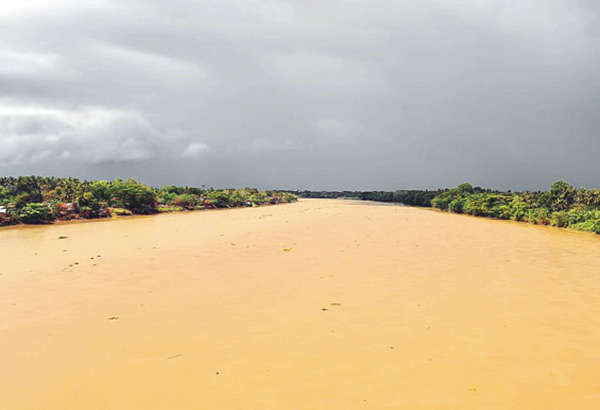‘Cities must boost climate planning’
Report out on sustainable cities
MANILA, Philippines - A study on climate change made by a conservation group showed that the level of preparedness of local governments and businesses needs further improvement, and that cities should presently get down to the brass tacks of climate planning.
The World Wide Fund for Nature (WWF) in cooperation with the Bank of the Philippine Islands (BPI) Foundation made possible the four-year study which also observed that a combination of predictable weather and vast lands create migratory sinks – hubs that attract population, including refugees displaced by climate change impacts and conflict.
“In anticipation, cities that are already showing abnormally high rates of in-migration should be undertaking in-depth reviews of their land use plans,” the report presented last Monday at the Ayala Museum in Makati City said.
“In many of the 16 cities assessed, it was evident that local initiatives were by and large reactive, rather than pro-active,” the WWF noted.
 Agusan river holds the future of Butuan City.
Agusan river holds the future of Butuan City. The study – “Business Risk Assessment and the Management of Climate Impacts” – also emphasized “the need to balance urban development and agricultural self-sufficiency, while investing in a multi-sourced supply of resources. As we face a climate-defined future, our collective challenge is to figure out how to sustainably produce more with less.”
WWF said that another key pattern observed was the need to ensure the viability of access and transport. “A great deal of the infrastructure, existing in and around cities, was not designed to cope with extreme weather episodes. This includes major arteries, airports and seaports, as well as many commercial and residential developments.
“Cities must also stabilize their resource base, invest in proactive reconfiguration, and build up reactive reserves. Ample financial reserves, strong governance, increased investment in building human capital, plus the sustainable management of resources are critical for resilience and competitiveness.”
The group likewise pointed out that by nature, cities are resource-scarce. “A resilient city takes responsibility for renewing its resources. This stabilizes shared value chains and creates new wealth.”
WWF-Philippines vice chair and CEO Jose Ma. Lorenzo Tan, who read out the report, said, “A city has to look at sustainability founded on balanced growth that feeds on shared value. This will translate to greater competitiveness. But, it must be founded on renewal. We must put back what we have taken out.”
 Liguasan marsh poses a threat to General Santos City.All photos courtesy of WWF
Liguasan marsh poses a threat to General Santos City.All photos courtesy of WWF Tan said that it would be unwise to build anywhere near the sea, and that the most suitable for habitation would be the second-tier cities or those not yet overwhelmed by population density, such as Laoag and Davao.
The study was conducted to prepare the largest Philippine cities for escalating climate change effects.
Initiated in 2011, the study’s first phase covered the cities of Baguio (tops in terms of density), Cebu, Davao and Iloilo. Its second assessed Cagayan de Oro, Dagupan, Laoag and Zamboanga. The cities of Angeles, Batangas, Naga and Tacloban were evaluated in 2013. For 2014, Butuan, General Santos, Puerto Princesa and Santiago were covered.
Butuan’s future was said to be inextricably linked to the Agusan river, while General Santos City faced threat from the Liguasan marsh. Infrastructure in Puerto Princesa was noted to be concentrated on the eastern section in the direct path of storms, while Santiago City would do well to consider a shift to mono cropping to mosaic cropping.
Vulnerability scores were generated from 20-year historical city-level data on climate exposure, socioeconomic drivers, and adaptive capacities. Multi-stakeholder Scenario Building Exercises that looked 20 years into the future also contributed to the scores. Think tank Brain Trust, Inc. facilitated the exercises.
In all, the study looks at a 40-year timeline.
BPI Foundation, whose initiatives cover education, entrepreneurship and the environment, strongly encouraged local leaders and business groups to make use of the study to bolster economic competitiveness and provide social safety nets in gearing up for the impacts of climate change.
BPI SVP and BPI Foundation executive director Faye Corcuera said, “We can climate-proof our cities if we act decisively. By gearing up for climate change, we can protect businesses and save lives.”
- Latest





























